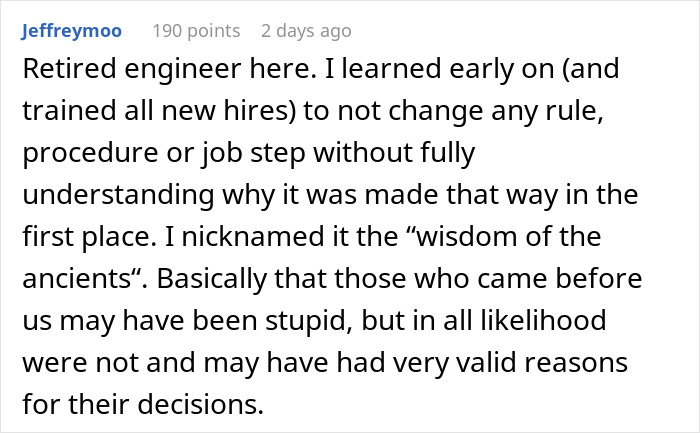Changing systems, rules, and regulations at work can be a major headache. Sometimes, when you think you’re optimizing the workflow to be more efficient and cost-effective, you’re actually making things way harder. Not just for the staff, but for your clients, too. In short, managers shouldn’t mess with overhauling existing systems until they first understand them and why they exist.
Redditor u/Gai_InKognito, who approves morning staff at a medical facility, opened up about how management changed the entire process for the worse. The issue? This meant that, according to the new policy, the employee had to start calling other workers up in the middle of the night… when they were obviously sleeping. This led to widespread panic and utter chaos. Bored Panda reached out to the author of the post, u/Gai_InKognito, and they were kind enough to share what their job was like, as well as their thoughts about managers changing long-standing work policies. You’ll find the full story, as well as our interview with the author as you scroll down.
A good rule of thumb is to never change any existing rules or workflows without first understanding how they function and why they’re there

Image credits: EyeEm / freepik (not the actual photo)
A worker in charge of staffing shared how they maliciously complied with a new work policy that led to utter chaos and angry employees
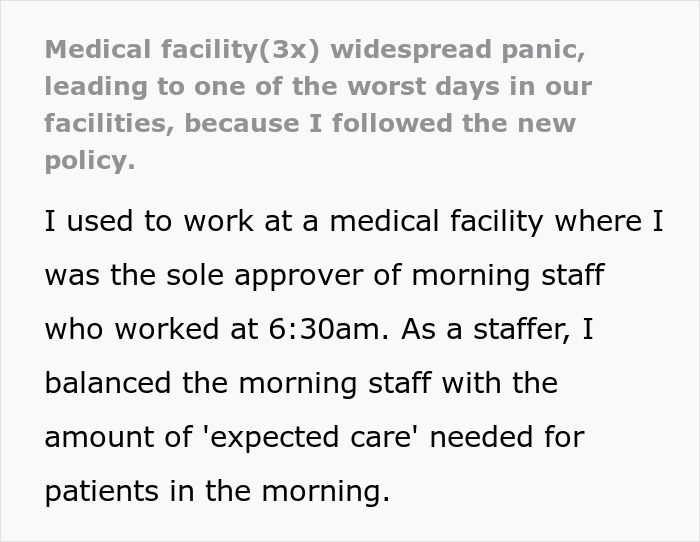

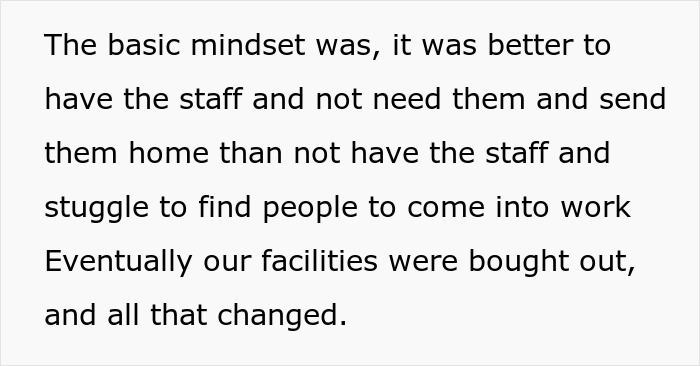
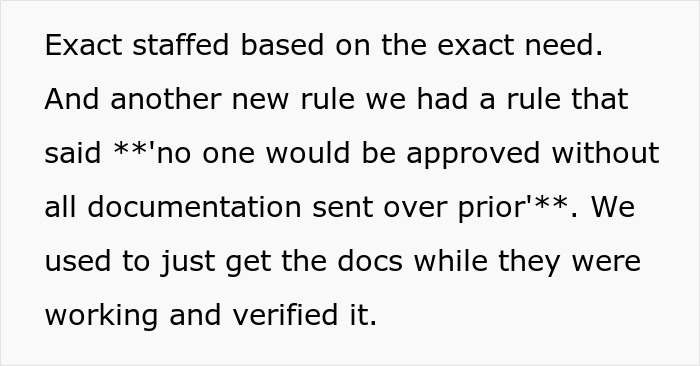
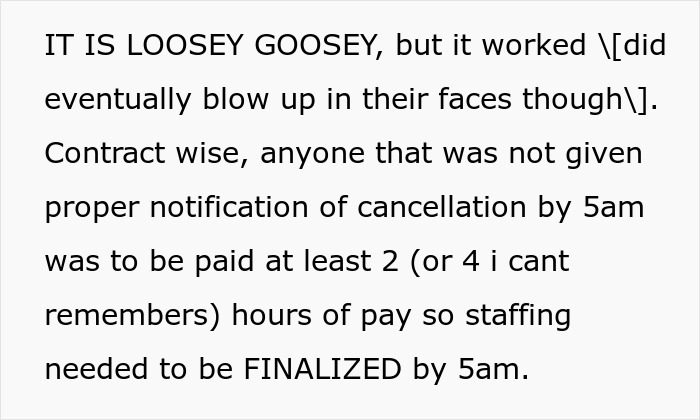
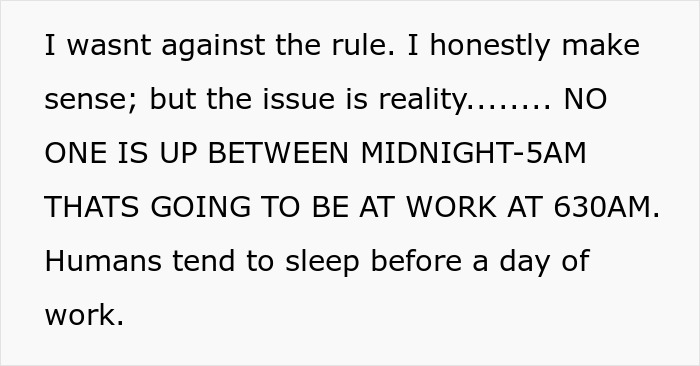
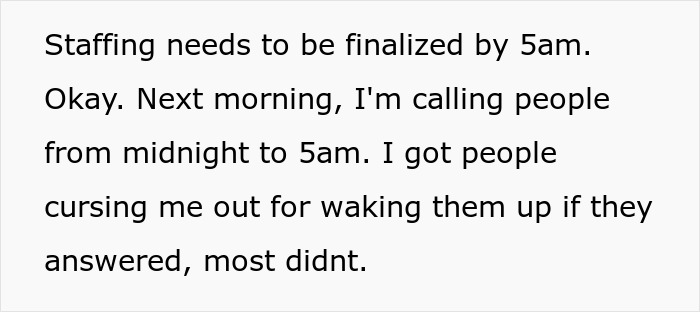
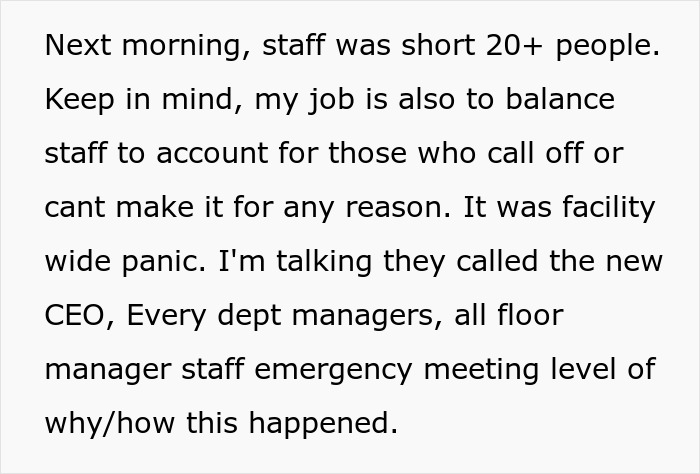
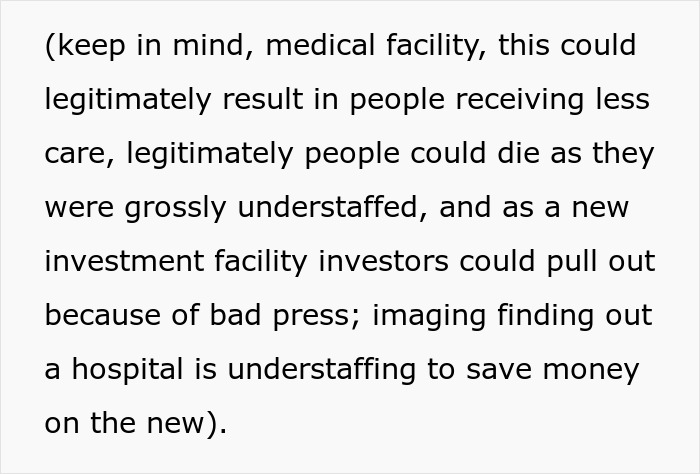

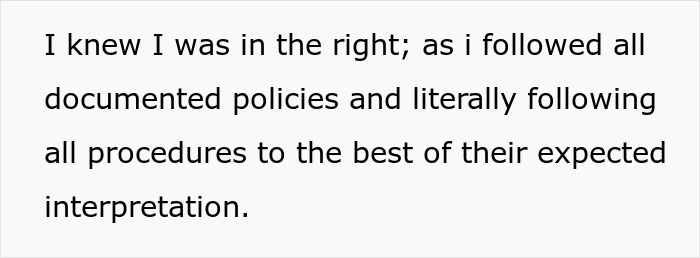

Image credits: stockking / freepik (not the actual photo)
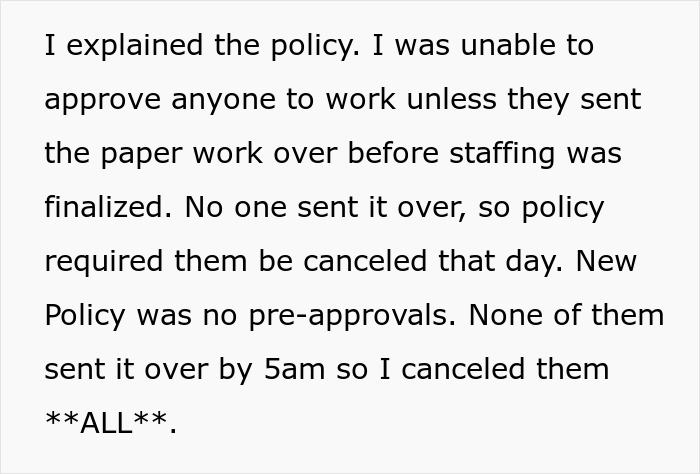
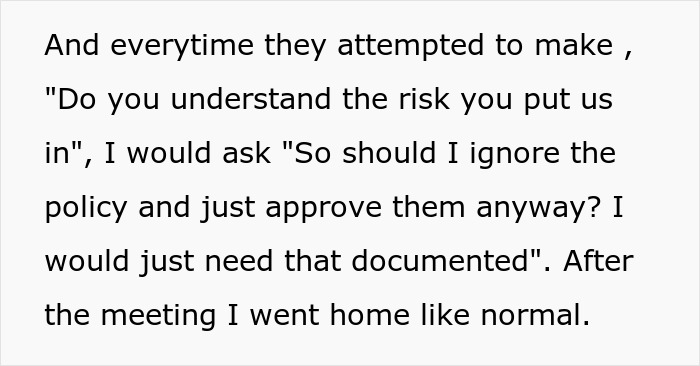
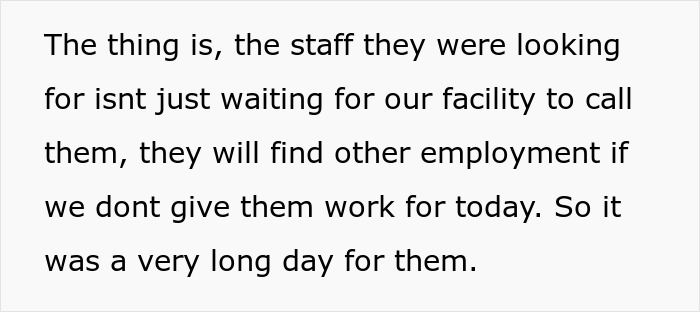
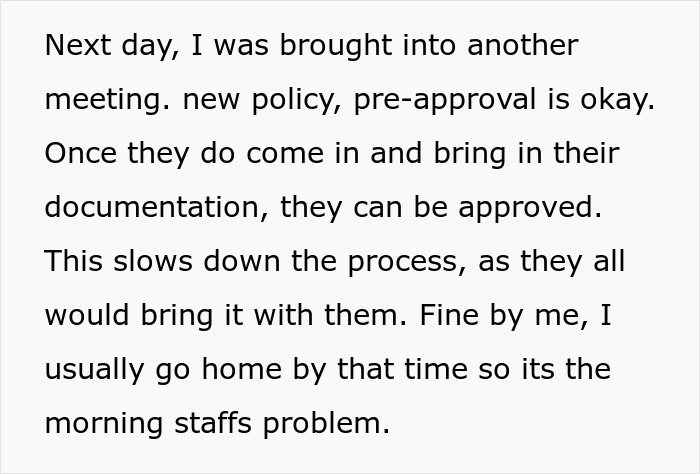
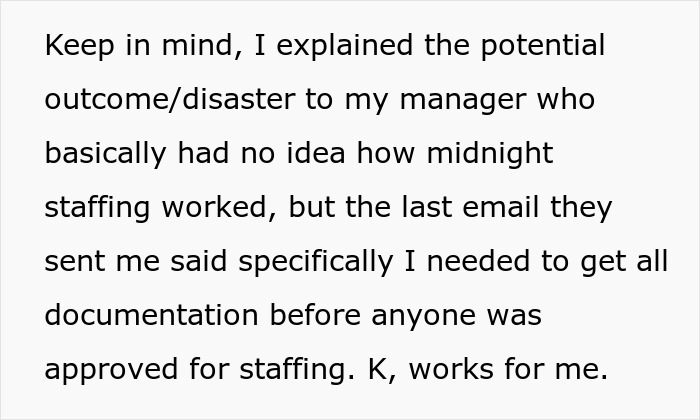
Image credits: Gai_InKognito
The change in policy, while logical and sound on paper, didn’t work for the morning shift

Image credits: Drazen Zigic / freepik (not the actual photo)
According to the author, the policy had certain pros, not just cons. “Honestly, the policy makes 100% perfect sense, as it was a medical facility and every measure should be taken into account. But, as I mentioned in the post, it wasn’t practical for the morning shift specifically,” u/Gai_InKognito explained to Bored Panda.
“If you’re going to work at 6:30 am, you’re not waiting around at 2 am to provide paperwork. The few who did answer cursed me out for waking them up and said they would bring it in the morning. Most didn’t.”
The author noted that this situation happened back around 2005-2006. “While internet/email was a thing, not everyone (especially in the medical field) was really tech savvy, so a lot of it was pen and paper at the time,” the author shared.
“I was honestly indifferent about the policy mostly, but I let them know what they were asking was going to cause a disaster BECAUSE of the specific hours. I think management went ahead with it because of the recent buyout and the pressure to perform ‘by the new book’ or else risk being let go.”
In u/Gai_InKognito’s opinion, new managers coming in and changing work policies is inevitable. “Whenever new management comes in cases like this, they are going to put profit over people until it’s a problem. We (old employees) know how things actually work, whereas new management just does what they think will work and will blame ‘the old guard’ when something goes wrong. I think a better approval system would have needed to be in place prior, but I had been saying that too for years,” they told Bored Panda.
“That particular day I had to cancel people en masse because none of them submitted their docs”

Image credits: syda_productions / freepik (not the actual photo)
The author wanted to clarify a few things about their job as well. “By the time my shift started, midnight, the staff floors/departments generally know how many people they need to work the next day and will already have a tentative schedule,” u/Gai_InKognito said.
“Say there are 4 people in labor and delivery ready to give birth. They know they need 15-ish people, and will have a schedule of people already made. Sometimes, they have more than they need, sometimes exactly, sometimes less. In the event they have more, it was my job to place the excess elsewhere IF NEEDED, or cancel them entirely,” they explained.
“If they had less, my job was to find excess elsewhere available, call staff not working, find independent contractors, or call external staffing/contractor companies. In general, staff that has the day off ISN’T coming in. No one wanted to work on their days off so we were mostly dependent on contractors, which was fine because they were definitely willing to work and got paid good money,” the author said.
“But by midnight the floors have a general idea. The problem was that the floors/departments would add contractors like they were regular staff to the staffing list BECAUSE they were generally pre-approved in the past. So if you needed 3 extra staff in the morning, they would just add them to the staffing list, and it was my job to basically balance, confirm, and approve the staff by 5 am because anyone not notified/canceled by then would get paid,” they told us.
“So, this is full circle where the problem was. The staff would think they were pre-approved so they added them to the list, they decided I needed them to submit their documentation by 5 am to approve them, I had to do that by 5 am, and NO ONE was available to do that. And that particular day I had to cancel people en masse because none of them submitted their docs.”
Good managers will listen to their employees’ opinions and warnings, considering them instead of ignoring them

Image credits: wavebreakmedia_micro / freepik (not the actual photo)
If you’ve worked at a few places, then you probably know that the rules and regulations that are physically written down are just the tip of the iceberg. There are lots of important processes and systems that exist that you only learn about by interacting with your colleagues.
So, when a new manager comes in and wants to overhaul everything for the better, they might have good intentions, but they’re not seeing the full picture. They need to take the time to familiarize themselves with the systems that are already in place and really get to grips with why they are the way they are.
It’s an even better idea to spend a bit of time either doing a particular role or shadowing an expert before you go about overhauling something related to their work tasks. That hands-on experience can quickly make you realize why your proposed changes might backfire.
Meanwhile, it’s absolutely vital that managers actively listen to their staff. The warnings, criticism, opinions, and considerations they share can help them avoid costly mistakes further down the line. Of course, management will still need to make a decision one way or the other, but it’s important to consider more points of view than just your own.
The sad reality is that not enough managers value their employees’ opinions enough. In those cases, a bit of malicious compliance with their new rules might make them realize how badly they messed up. There’s nothing like dealing with the consequences of your actions to make you rethink your entire approach… and, hopefully, start valuing your staff a bit more.
Proper work-life balance helps keep your employees motivated. If someone starts calling you in the middle of the night with work-related questions, not only are you going to get angry (and start considering other job opportunities), but it’s also going to damage your physical and mental health.
A lack of proper boundaries isn’t just bad for your well-being; it’s also going to negatively affect the business because you’re less effective when you’re tired. In short, supporting your employees so that they’re well-rested, happy, and motivated isn’t just the ethical thing to do; it’s also the smart thing to do. Workers who feel heard, are supported, and have autonomy will outperform those who feel ignored, harassed, and pushed around.
Managers having their workers call their colleagues at night is going to demotivate them and harm their health

Image credits: DC Studio / freepik (not the actual photo)
According to the Sleep Foundation, increased connectivity in this day and age has blurred the line between work and being at home.
“Without a sufficient boundary between work life and home life, people may sacrifice personal needs to complete more work tasks.” Doctors, on-call workers, and work-from-home staff are often easily reached 24/7. Meanwhile, nurses, pilots, industrial workers, and shift workers often work hours that contradict normal sleep periods.
Employees who are able to psychologically detach themselves from their jobs after their work hours generally see fewer negative effects of work-related stress. On the flip side, exhaustion and sleep deprivation can lead to workplace accidents and reduce performance.
Someone who is sleep-deprived has trouble maintaining focus and is less vigilant. It also negatively impacts your reaction times and makes you more irritable, angry, and vulnerable to stress. This is awful for medical staff and first responders whose jobs require them to be sharp.
The Sleep Foundation explains that fatigue costs US companies around $136.4 billion a year due to reduced productivity, lower motivation, and healthcare-related costs.
Have you ever had someone from management suddenly change the rules and policies at work for the worse? What was the fallout like? Did they listen to your warnings? What do you do to make sure that your superiors hear you out instead of ignoring you? How do you push back against bonkers policy changes? Who is the very worst boss you’ve ever worked under? Let us know in the comments below.
As the story started getting more and more attention online, the author shared a bit more context
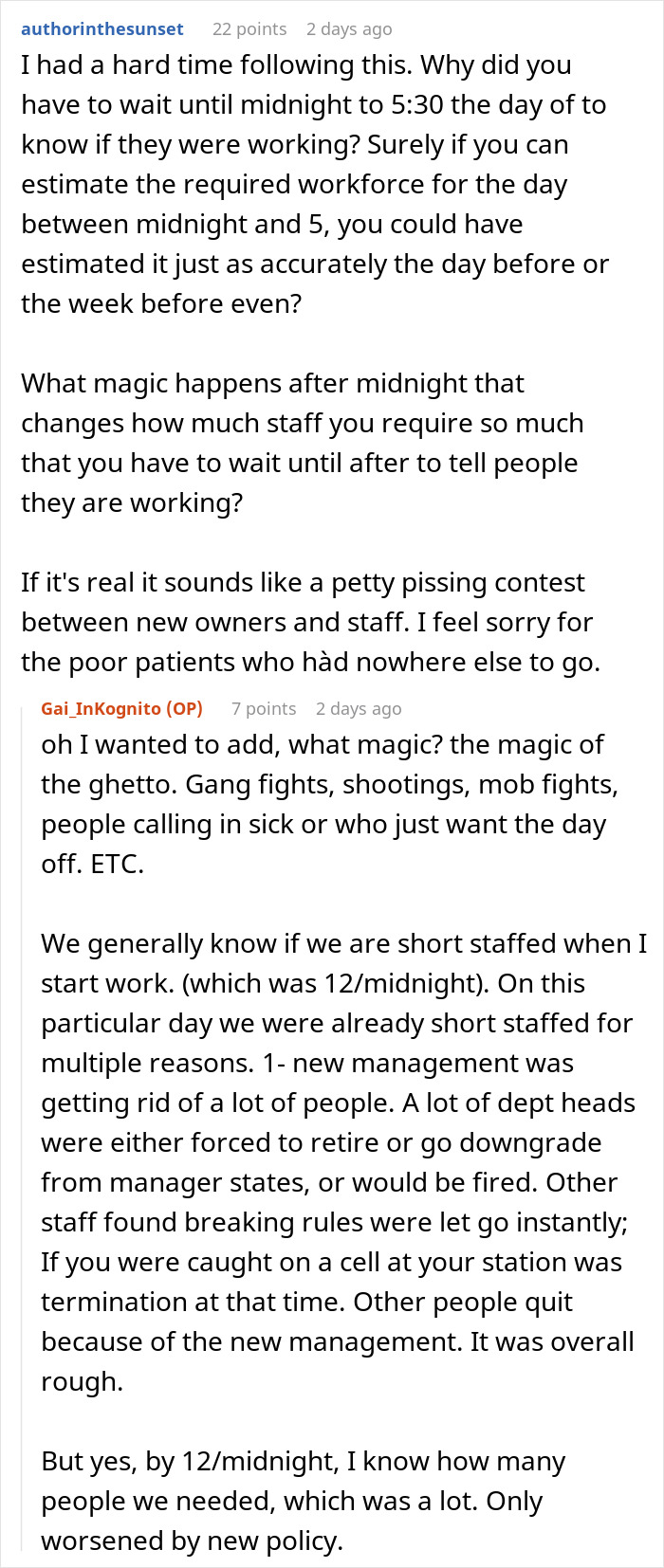
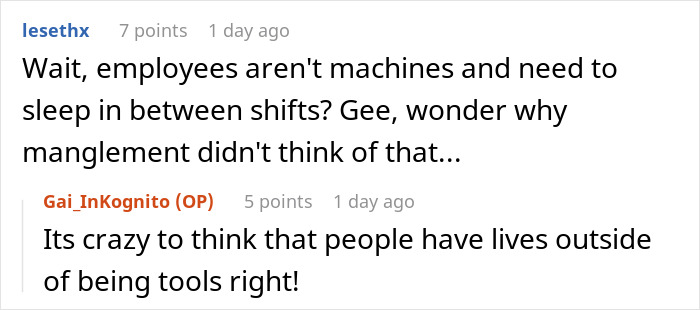
Many internet users wanted to share their thoughts about what happened. Here’s their take
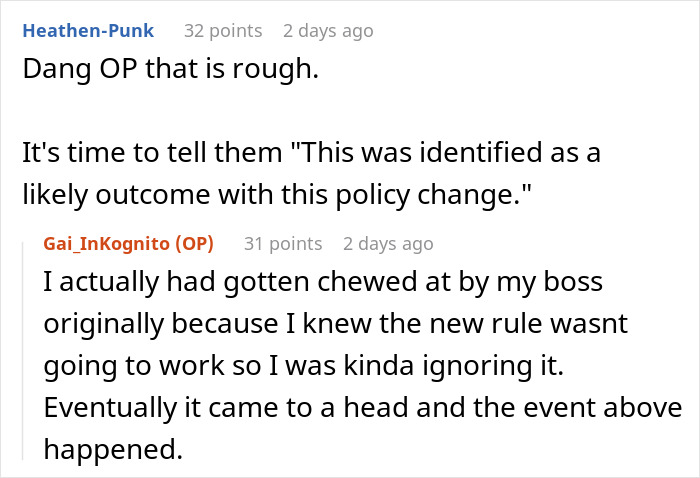
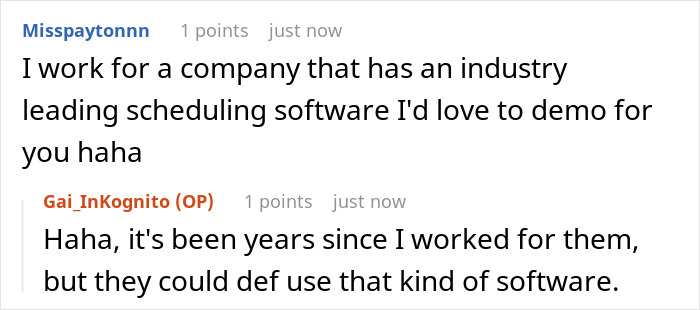
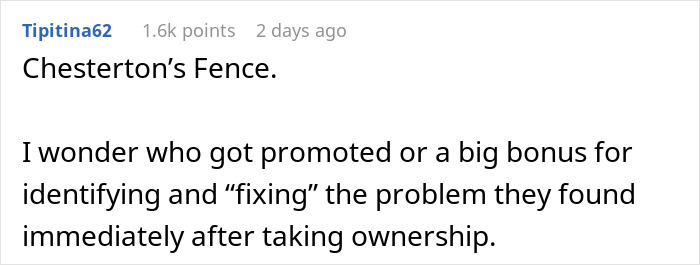


Unfortunately, these sorts of situations happen in various industries. Here are some stories that other professionals shared
